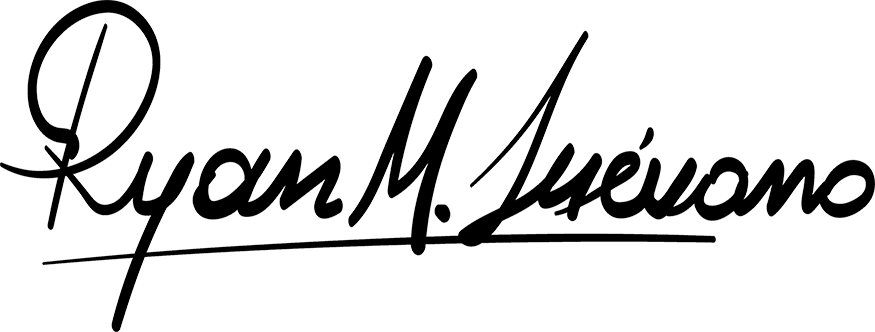FAKE IT: OVERSTUFFED AND UNDERCOOKED FARCE
REVIEW: FAKE IT UNTIL YOU MAKE IT
BY RYAN M. LUEVANO
Center Theatre Group’s world premiere of Fake It Until You Make It, by Larissa FastHorse, marks a significant milestone as she becomes the first Native American playwright featured at the Mark Taper Forum. Directed by Michael John Garcés, this co-production with Arena Stage in Washington D.C. showcases a talented cast including Noah Bean, Eric Stanton Betts, Julie Bowen, Tonantzin Carmelo, Brandon Delsid, and Dakota Ray Hebert. With such a diverse ensemble, expectations run high for a fresh and engaging theatrical experience.

The term “farce” originates from the French word meaning “to stuff,” as comedic elements are historically inserted into serious plays to attract audiences. Merriam-Webster defines farce as “a light dramatic composition marked by broadly satirical comedy and improbable plot,” while Britannica Encyclopedia describes it as a comic piece characterized by improbable situations and exaggerated characters. With this understanding, one anticipates a play that deftly balances humor and absurdity, but Fake It Until You Make It struggles to find its footing.

The plot centers around Wynona, the Native American owner of N.O.B.U.S.H., and River, her white counterpart at Indigenous Nations Soaring, who both apply for the same non-profit grant. Additionally, River has obtained a restraining order against Wynona for her cat. Conflict arises as Wynona attempts to sabotage River’s chance of getting the grant by forcing her husband to work for River while pretending to be a Native American. Meanwhile, their colleagues become embroiled in the chaos caused by this deception.

Unfortunately, the farcical elements—such as slamming doors and mistaken identities—are introduced so sporadically that they feel disjointed rather than integral to the story. The rhythm of the dialogue and physical comedy lacks the speed and timing typical of successful farces, creating a frustrating stop-and-go experience akin to being stuck in traffic on a busy freeway. The play oscillates between moments of farce and characters engaging in conversations that preach an agenda to the audience—nothing funny or farcical about that.
At its core, Fake It Until You Make It grapples with too many topics and themes. There are two plots at work here. First, the farcical plot involves two people fighting for a grant. It’s uninteresting, but at least they’re fighting for something. Then there’s the “podium plot,” where characters expound on serious topics: identity, appropriation, sexuality, racism, colonialism, non-profits, government, white privilege, and race shifting. These two elements are in constant conflict, and in the end, there is no winner. Throughout the play, characters tell us we’re living off blood money and “we all have debts to pay.” We are also presented with the idea that racial identity is fluid and DNA is a lie.

Director Michael John Garcés does his best to draw out farcical and comedic elements to keep the audience engaged, but with so little to work with, this falls short. The set further slows the momentum as the audience has to wait for the pop-out office section, where all the door slamming occurs, to retract before physical play can commence.
As always, the cast serves as the saving grace of the play, working tirelessly to bring out the comedic elements. They truly rise to the occasion, elevating their two-dimensional characters into interesting, funny people with heart—elements not found on the page. Julie Bowen proves to be an energetic, generous, and sharp comedic theatre actress in this piece. Like much of the cast, she works twice as hard to inspire laughter. Her commitment to elevating this role is incredible from start to finish. Her relentless effort fuels the cast to carry on and encourages the audience to dig deep to let out a chuckle now and then.

Ever since the COVID-19 pandemic, a pandemic for the arts also emerged, “Woke Theatre.” This is defined as theatre that exists not to tell a story, inspire, or even amuse, but for the playwright, sometimes bluntly, to tell the audience what socio-political agenda, belief, or practice they should accept or participate in. What’s more, audiences and institutions are eager for this experience as if their participation absolves them of all their sins. Fake It Until You Make It is a prime example of this kind of theatre—a play over-stuffed with an agenda poorly disguised as a farce.
CALENDAR LISTING
Venue: Mark Taper Forum, 135 North Grand Avenue, Los Angeles CA 90012
Dates: Wednesday, January 29 to Sunday, March 9, 2025; Press opening is Wednesday, February 5.
Schedule: Tuesday through Friday evenings at 8:00 p.m.; Saturdays at 2:00 p.m. and 8:00 p.m.; Sundays at 1:00 p.m. and 6:30 p.m
Tickets:
Prices — begin at $35
Website — CenterTheatreGroup.org
Phone — Audience Services at 213.628.2772
In person — Center Theatre Group Box Office (at the Mark Taper Forum) at The Music Center, 135 N. Grand Avenue in Downtown L.A. 90012
Groups —CenterTheatreGroup.org/Tickets/Groups-and-Corporate-Offers
Access — Center Theatre Group offers a number of services to accommodate persons requiring mobility, vision, and hearing access.








